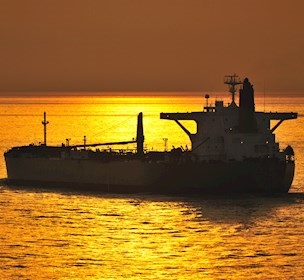Digital twins – a step on the road to making shipping more green
Study of performance data and machine learning is going to improve training of captains.
Within the ShippingLab collaboration, FORCE Technology is in charge of the work package Digital Ship Operation. The focus of the work package is to develop tools and methods to create so-called “digital twins” of ships by using data. By developing digital twins of a ship, the optimization of the operation of the ship will become far more precise and efficient as the effects of the improvements can be simulated in an exact model of the specific ship.
Digital twins = green shipping
As part of the work package, a ship from Scandlines will for instance be equipped with a large number of measuring tools that will monitor and record data on e.g. wind speed, water depth, trim, draught, fuel consumption and the ship’s movements in the water.
The recorded data is sent to Technical University of Denmark (DTU) where machine learning models will be developed on the basis of the data and be combined with models for engine characteristics, fouling, thrusters, rudder, propeller etc. In this way we end up with a digital twin with focus on manoeuvring characteristics.
New and updated simulator models based on real-time data bring the training environment even closer to reality. The more realistic the training environment is, the more efficient the training becomes, and the better the captains become at navigating the ship in an environment-friendly and optimal manner irrespective of wind and weather.
Projects like ShippingLab are necessary to Danish industry
We participate in and are in charge of a work package in ShippingLab for a number of reasons. We develop and program ship simulators used for training of pilots and captains from all over the world.
Through our participation in ShippingLab, we can contribute with our knowledge of simulators and ship performance. But we also gain much new knowledge about ship performance, depth, cargo, fuel consumption and much more as well as knowledge about DTU’s work and development of machine learning. This new knowledge will be used in the further development of our training simulators and benefit our customers.
Being part of the project perfectly matches our position as a GTS institute (government-approved Danish Research and Technology Organisation). We are a link between business and research organisations, in this instance by ensuring that the results from DTU are transferred to and are “commercialized” to the benefit of the industry.
Cross-disciplinary collaborations strengthens the Blue Denmark
ShippingLab is a maritime initiative focused on enhancing the technological development through cross-disciplinary collaboration to the benefit of both the industry and society. Magnus Gary, Project Director of ShippingLab, sees an enhanced cross-disciplinary collaboration in the Blue Denmark as a great advantage: “Through collaboration and development of concrete competences, the Blue Denmark will remain a competitive cluster.”
And Magnus adds: “We (the Blue Denmark) will lead the development of green technology and quality shipping, thereby ensuring that this will still be a focal point for stakeholders within the global maritime industry.”


